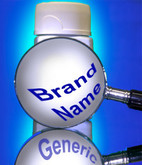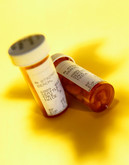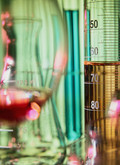Biosimilars/Research
Substitution of biosimilars in the US
The approval of the first biosimilar in the US, Zarxio (filgrastim), on 6 March 2015 [1], prompted Sarpatwari and co-authors to investigate how biosimilars might be substituted for originator biologicals in the US [2].
Substitution of generics in the US
In order to evaluate how strategies to promote the prescribing of generics by physicians in the US might apply to biosimilars, Sarpatwari and co-authors discuss the types of substitution possible with generics [1].
Comparison of the markets for biosimilars and generics
Health is a typical field where the economic theory of market competition does not enjoy the basic conditions to work and the pharmaceutical market is no exception. However, as soon as a patent expires, price competition is opened up.
Patient registry data supports efficacy and safety of Inflectra
US-based injectables specialist Hospira presented data on 19 February 2015 on the use of its biosimilar version of infliximab, Inflectra, at the 10th Congress of the European Crohn’s and Colitis Organisation (ECCO).
Paying physicians to prescribe generics and biosimilars in the US
Healthcare spending on prescription medications comprises 1.6% of gross domestic product (GDP) in the US and continues to rise. Brand-name prescription medications – both small-molecule and biological drugs – are the primary driver of this growth, increasing 15% in price in 2014 alone [1].
Survey among pharmacists shows high confidence for biosimilar substitution when same generic name is used
Approximately 75% of pharmacists indicated that they would be confident or very confident in substituting an interchangeable biosimilar with the reference product if both shared the same active ingredient or non-proprietary name of the reference biological, according to a survey published in JMCP [1].
Equivalent safety and efficacy of nephrology subsequent entry biologics in Canada
A review of efficacy and safety data for subsequent entry biologics (SEBs) used in nephrology practice in Canada has found little clinical difference between epoetin SEBs and the reference product. But while the clinical differences are minimal, argue the authors, the financial implications of a possible dose difference between epoetin zeta and the reference product should be considered in future pharmacoeconomic studies [1].
Comparison of non-originator filgrastim with Neupogen finds no difference in neutropenia recovery periods
Results of an observational study found no difference in Biocad’s non-originator filgrastim (Leucostim) compared to Neupogen in the recovery periods for patients with chemotherapy-induced neutropenia [1].
Generics and off-patent biologicals for cancer treatment in developing countries
The understandable focus on infectious diseases, such as human immunodeficiency virus (HIV), malaria and tuberculosis (TB), has meant that an increasing burden of non-communicable diseases (NCDs), notably cancer, now needs urgent attention across developing countries [1]. Generics and biosimilars offer a lower-cost approach to treatment, but these drugs raise challenges of their own.
Positive phase III data for Amgen adalimumab biosimilar
US biopharmaceutical giant Amgen announced on 3 February 2015 positive results from its phase III clinical trial for a biosimilar version of adalimumab in patients suffering from rheumatoid arthritis.











